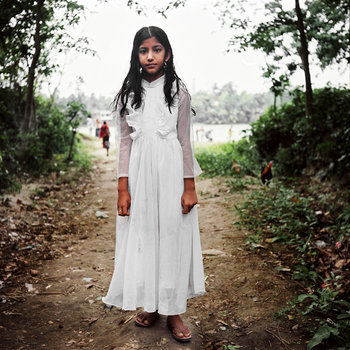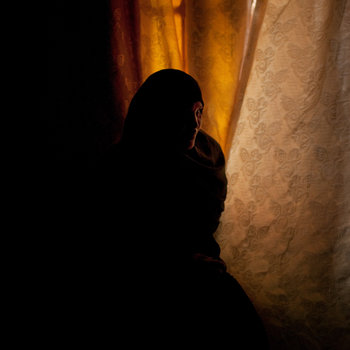Tracing Present Scars to Past Traumas: Elizabeth D. Herman's Post-Conflict Photography
Time, pitilessly lurching forward, has a way of altering memory.
And a memory can be a powerful thing. Tweaked, reinterpreted, repackaged — in a war-ravaged country, it's a political tool, to be sold back to people seeking stability, seeking answers. Or, it could be a means to empowerment, a way to define one's course and actions across a lifetime.
Elizabeth D. Herman in her series “A Woman's War,” examines memory's relationship to the present, but also gives a voice to those often pigeonholed in the story of war: women. Ms. Herman understood that the world was messier, that women had roles that went beyond either caregiver or victim.
“I went into this project knowing that women as victims of rape was one version of history that was talked about a lot,” said Ms. Herman, 23. “It was kind of the only version of women in the war that was put forth.”
 Her project is primarily concerned with the Vietnam War and the Bangladesh war of independence, but it's a “post-conflict project,” striving to trace the scars that exist today to the events that made them. She places the viewer face-to-face with women whose stories are what remain of events that have faded into the past. “It wasn't just that the war started and ended when it did, and then they went home,” she said. “They had to reconcile the scars of the war and deal the trauma and how that has lingered in their lives.”
Her project is primarily concerned with the Vietnam War and the Bangladesh war of independence, but it's a “post-conflict project,” striving to trace the scars that exist today to the events that made them. She places the viewer face-to-face with women whose stories are what remain of events that have faded into the past. “It wasn't just that the war started and ended when it did, and then they went home,” she said. “They had to reconcile the scars of the war and deal the trauma and how that has lingered in their lives.”
In 1971, while the women's liberation movement — and other social and political upheavals — challenged old ways in the United States, the part of the Eastern Hemisphere was rived by these two wars. Casualty estimates of the Bangladesh war, a conflict that brought an astonishing amount of violence to one year, vary wildly, from 26,000 to 3 million. The estimates of sexual assault or rape — in the hundreds of thousands — are staggering as well. It's a bewildering scale of calamity.
But for many of these women, the subject is taboo. Most have not had an opportunity to discuss their past: “In Bangladesh, there was a woman who hadn't told these stories for 40 years, and these stories literally shaped their lives,” Ms. Herman said. She interviewed a woman who described atrocities committed by both sides, and how the national memory, “the national consciousness of the fight,” had prevented her from opening up before.
“She sort of broke down at one point,” Ms. Herman recalled. “She said, ‘Why am I crying about this? This happened 40 years ago,' and I said, ‘Well, you must talk about it a lot,' and she said, ‘No, we don't talk about this.' There's no space to talk about this.”
Ms. Herman's intent is to carve out that space, to invite a nuanced understanding of events. “If you have a glorified narrative, if we have heroes who are going off to fight, there's no space for trauma, no space for individual experiences or ambiguity,” she said.
The women she spoke to had complex stories, and their feelings after the war did not always resemble their feelings before it. In interviews with her subjects, Ms. Herman found several recurring themes: of justice, gender equality, patriotism and nationality. She was keen on reporting a nuanced story, but sensitive to coming to the project with her own agenda and contaminating her own view, and that of her viewers.
“Going in, I was specifically not going to talk about women as victims — I was going to talk about them as warriors, as fighters,” she said. “As I worked on the project more, I realized I was contradicting myself. Because I was trying to fight a rigid, singular narrative with a really rigid, singular narrative.”
As conflict continues to draw contours and transfigure the world, Ms. Herman's project continues to document the aftereffects. She is currently on her second trip to Egypt, where the events are too fresh to contextualize: “If you're closer to the event, it's harder to see the bigger picture and see how it relates to your life,” she said. Posing the same questions she had asked in Vietnam and Bangladesh to Egyptian women, Ms. Herman said she often heard, “‘I'm still within it, I'm not far enough away from this to answer that question yet.' I would spend hours in Bangladesh and Vietnam on that question. We were just too close to the actual involvement in Egypt.”
It's an elusive business, since one's recollections — unlike a photograph — aren't static things. A photograph's specificity can be misleading, as everything outside the frame fades away. A memory seized by a mind, however, is as in flux as the present — constantly adjusting to new contexts, it is also an imperfect agent.
“Each time you recall a memory, you destroy it a little bit.”
